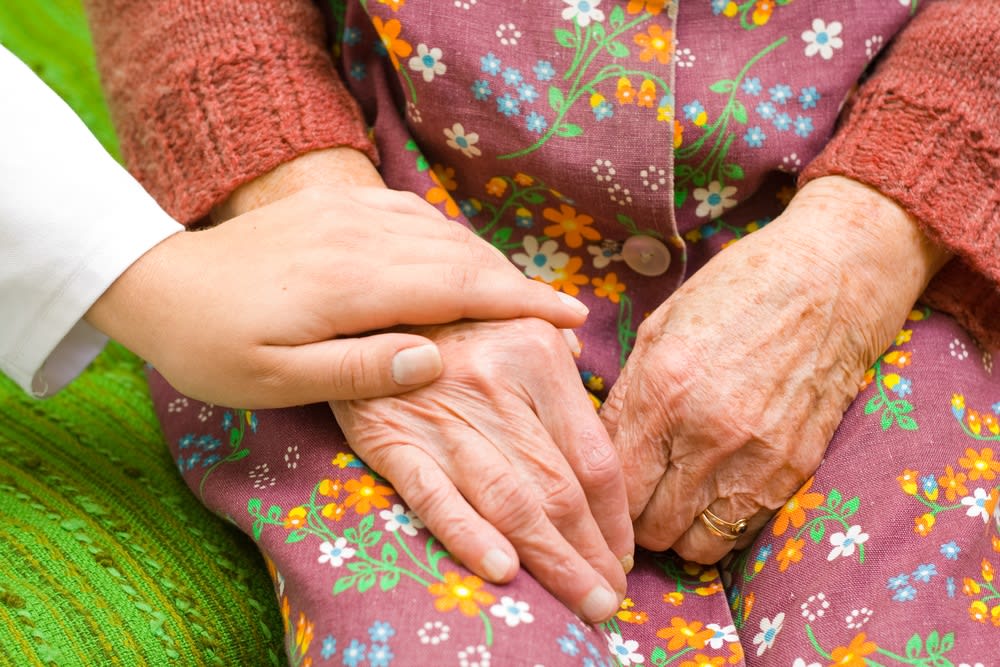
Senior Respite Care: Time Off from Caregiving

Caregivers put their heart and soul into their work, and this is part of what makes every caregiving story unique. But all caregivers deserve some help or even the chance to step away from time to time. Respite care, whether provided in your home or through a short-term stay at a senior living community, can be the perfect help or break. In-home respite care can help keep caregiver fatigue and burnout at bay, and there are other out-of-home arrangements, too. If you’re curious and want to know your local options, you can even try home respite care before you have an urgent need. Planning ahead will help you and your aging family member know you have a trusted option when the time comes.
Let our care assessment guide you
Our free tool provides options, advice, and next steps based on your unique situation.
Key Takeaways
- Respite care provides you temporary relief from caregiving duties. You can travel, run errands, visit friends, go to the doctor, or simply relax.
- Senior living communities near you may offer short-term respite care. This means your loved one won’t have to commit to living full-time in an assisted living community or nursing home.
- You can receive respite care in your own home. Most in-home care agencies can provide homemaker services on a short-term basis.
- Don’t wait until the last minute. People book respite care well in advance, which makes it harder to arrange it on short notice during the holidays and summer.
What is respite care?
Respite care provides you temporary relief from your caregiving duties when you need a break or extra support. While someone else cares for your elder family member, you can travel, run errands, visit friends, go to the doctor, or simply relax.
Respite care can be provided in your home by a home care worker, such as a certified nursing assistant, or through a short-term stay at a senior living community. Medicare may cover respite care in some cases. When provided in senior communities, respite care may also be called short-term care or short-term assisted living.
No matter where it’s provided, respite care services typically include assistance with activities of daily living (ADLs) and personal care, such as bathing, dressing, meal preparation, and transportation. Some people also use respite care to recover after a medical procedure or hospital stay.
“You can’t pour from an empty cup, and respite care can be a gift to everyone involved,” says Brenda Gurung, a former senior national account manager at A Place for Mom and founder of Be Growth Dementia Education. “It’s an opportunity for the family caregiver to rejuvenate and for a senior to spread their wings in a new setting of care, support, and empowerment.”
Read related article:The Worrying Facts About Caregiver Health and Stress
Senior living communities and respite care
Many people don’t realize that their nearby senior living communities may offer short-term respite care. This helpful option means you can get the temporary help you need without your loved one having to fully move into a senior living community.
Senior living communities with successful respite care programs provide their short-term residents the same level of care and attention as their full-time seniors. During a short-term stay at an assisted living facility, your loved one will:
- Be included in daily activities, have the opportunity to socialize, and dine among other seniors
- Receive personalized care, companionship, and transportation
- Be under skilled supervision on secure grounds
- Potentially have access to medical services, like on-site nurses

Let our care assessment guide you
Our free tool provides options, advice, and next steps based on your unique situation.
Tips for booking a short-term respite stay
Scheduling respite care is only a click or call away, but it’s important to research and plan well ahead before booking the care you need. Be sure to give yourself time to fill out the necessary paperwork, reserve the services your loved one requires, pack their items, and understand the community’s medication policies.
Here are some tips for booking a short-term respite stay:
- Set up the stay far in advance. People sometimes book respite stays several months out to accommodate their preplanned vacation time and other events. This makes respite care harder to arrange during the holidays and summer vacation months, so don’t wait until the last minute.
- See if there’s a minimum-stay requirement. Some assisted living communities and nursing home respite care providers may require short-term residents to stay for a certain amount of time, which could limit your options.
- Know the admissions process. Be prepared to fill out a fair amount of paperwork with your loved one’s information. You’ll also take in a lot of information about the community before confirming a reservation. Communities must comply with state intake requirements, even for a short-term stay.
- Understand the cost and what’s included. Senior communities set their own respite care rates, and these rates vary. Ask about what’s included in the overall cost: Are meals included? What about amenities, activities, and outings?
- Ask about the medication policy. You may consider waiting before filling your loved one’s pill planner for the stay, because arriving with a large supply of medication might not be allowed under a community’s medication policy. Some communities require that each medication be dispensed individually from the original prescription containers.
- Decide what items to bring. What exactly does your loved one need to pack? What does the respite care provider offer? Ask for a copy of the community’s move-in checklist to ensure you bring what your loved one needs.
- Talk to your loved one about the upcoming change. Your relative may not like the idea of a respite care stay at first. Discuss how everyone can benefit from the temporary situation, and how you can be a better and more attentive caregiver after their short-term respite care stay.
In-home respite care
In-home respite care typically covers a variety of nonmedical services for your loved one while giving you the break you need. Most in-home respite care professionals are trained to help your aging loved one with basic ADLs such as eating, bathing, and toileting. These caregivers can sometimes also assist with running errands and transporting your loved one to appointments.
If your loved one needs a higher level of care, you may need to search for a home health care aide who can provide actual medical support. These professionals have more advanced medical training and are typically certified to provide more complex care. This level of care may be necessary if your loved one needs injections administered or a catheter changed.
In some states, a home health care aide can help administer medications directly. In others, they can set up the medication or offer reminders to your loved one. If you’re unable to find the right aide, or if your state doesn’t allow necessary medication administration, nursing home respite care may be a better fit.
Other respite care options
Depending on where you live, respite care may also be offered through the following:
- Volunteer organizations. People who love working with seniors volunteer through local and national organizations, such as Senior Corps. Programs like these typically provide companionship and light care assistance for your loved one.
- State agencies. The National Respite Network offers a search tool that can help find respite care providers in your area. Further down on that page, there are links to state resources and more.
- Adult day care providers. Adult day care services can provide supervision, activities, personal care, and companionship. Although their hours are typically more limited than what’s available at a senior living community, adult day care can still be a way to provide caregivers the time off they need. The Administration for Community Living maintains a page on adult day care centers.
- Supportive care providers. Also called comfort care or palliative care, supportive care is usually meant for patients recovering from a procedure or other medical intervention. It also often coincides with ongoing medical care addressing a specific concern. Seek medical advice if you think this kind of care may be what your loved one needs.
Read related article:What is the Sandwich Generation? Unique Stress and Responsibilities for Caregivers Between Generations

Talk with a Senior Living Advisor
Our advisors help 300,000 families each year find the right senior care for their loved ones.
Financial assistance for respite care
Depending on your situation, you may be eligible for financial assistance to help cover the costs of respite care. Here are some financial assistance options:
- Long-term care insurance. Depending on your loved one’s existing plan, coverage may be available for home health care or adult day care.
- Medicare. The U.S. government’s health insurance program will pay for short-term inpatient respite care in a Medicare-approved facility such as a hospital, hospice facility, or skilled nursing residence. However, the approval process may be complicated, and an enrollee may incur costs.
- Medicaid. This state-run program qualifies lower-income individuals for care services, depending on state regulations. Respite care is covered, but there are complex requirements.
- Veterans benefits. Seniors who are eligible for the VA Aid and Attendance benefit and who receive help with activities of daily living, such as bathing or dressing, may receive a supplemental income to pay for these services.
Find senior respite care near you
You’re not alone, and support is closer than you think. Our Senior Living Advisors can offer guidance on in-home care respite options, and they can point you to senior living communities that provide respite care — all at no cost to your family.
The information contained on this page is for informational purposes only and is not intended to constitute medical, legal or financial advice or create a professional relationship between A Place for Mom and the reader. Always seek the advice of your health care provider, attorney or financial advisor with respect to any particular matter, and do not act or refrain from acting on the basis of anything you have read on this site. Links to third-party websites are only for the convenience of the reader; A Place for Mom does not endorse the contents of the third-party sites.
Make the best senior care decision
Make the best senior care decision